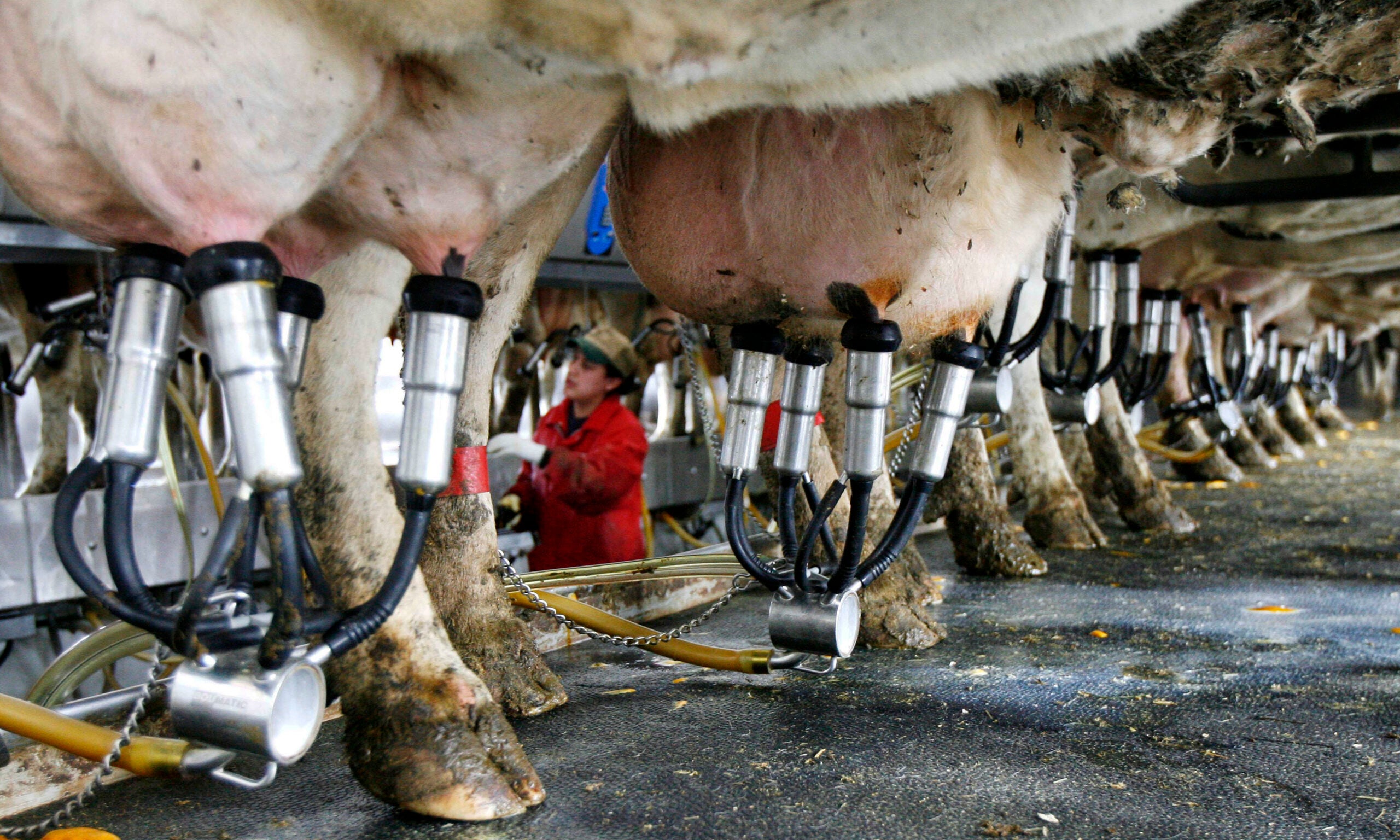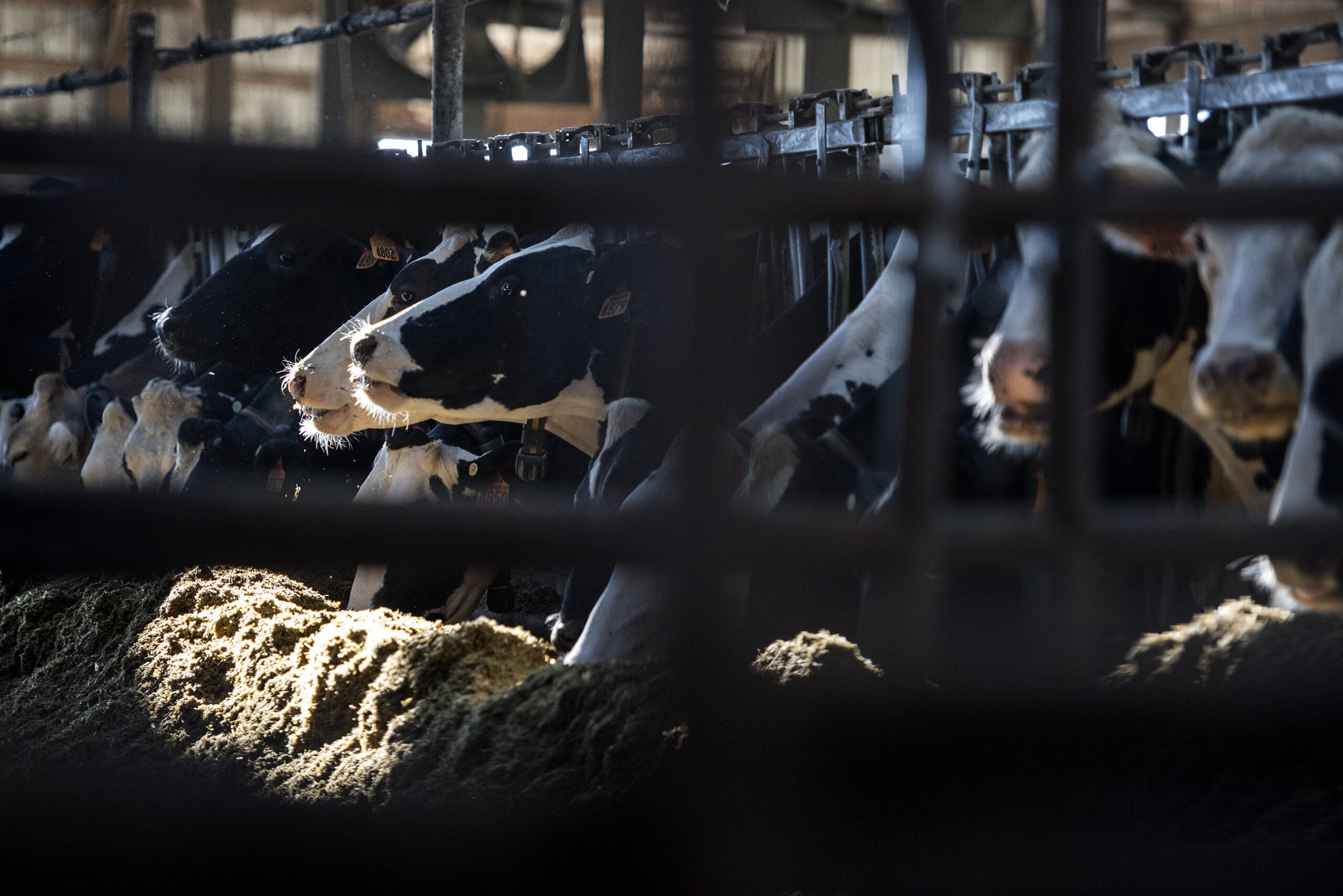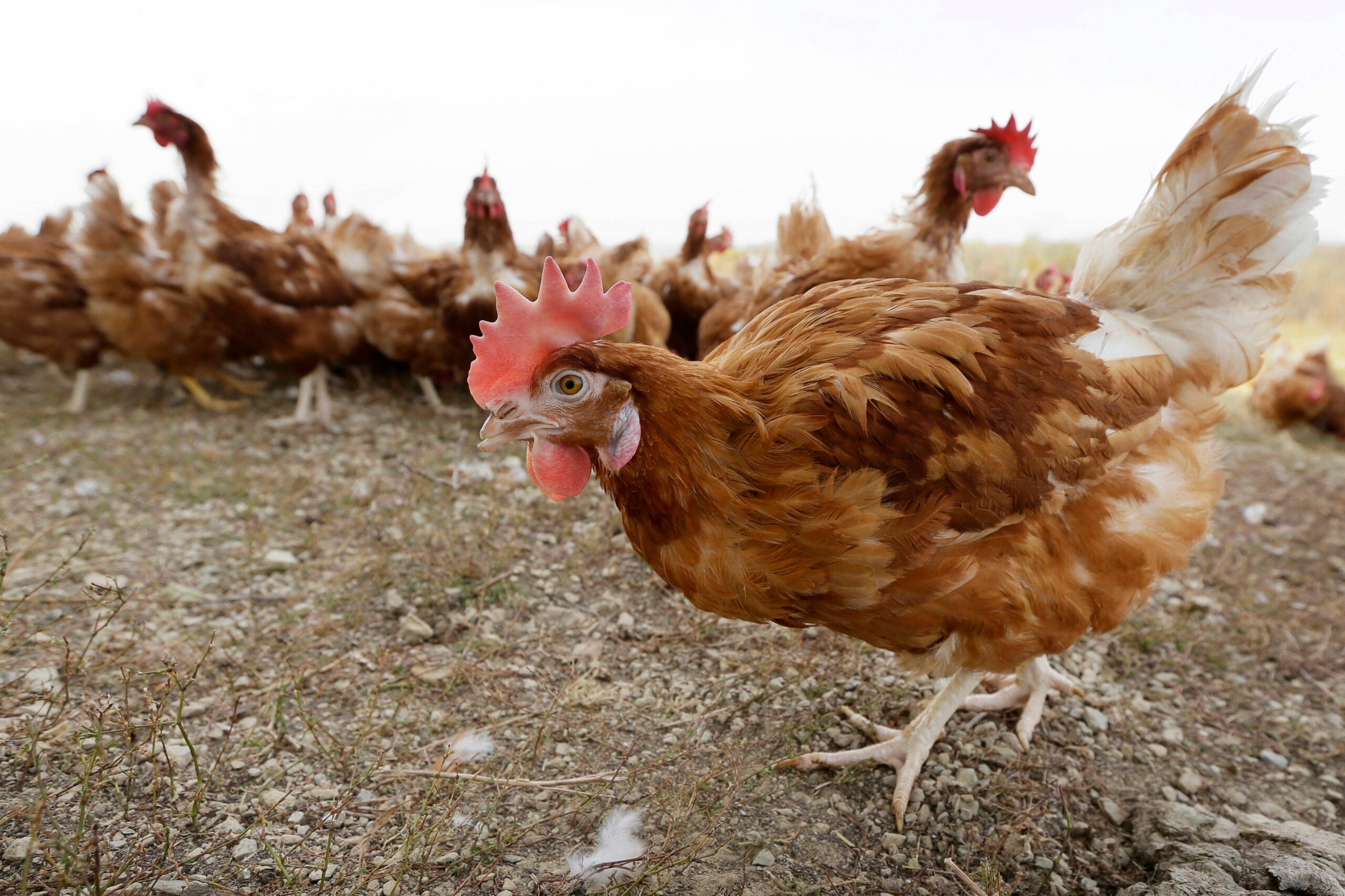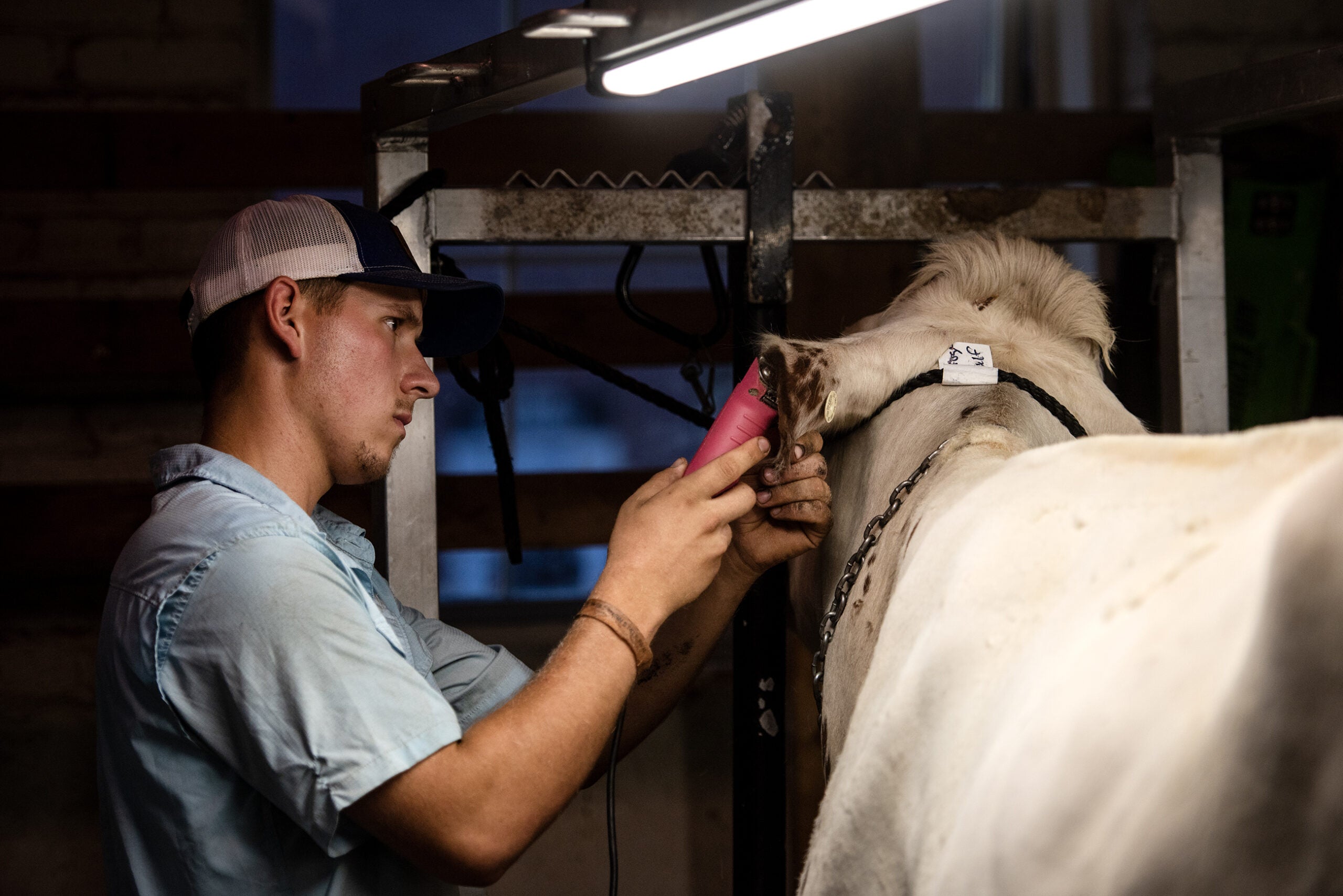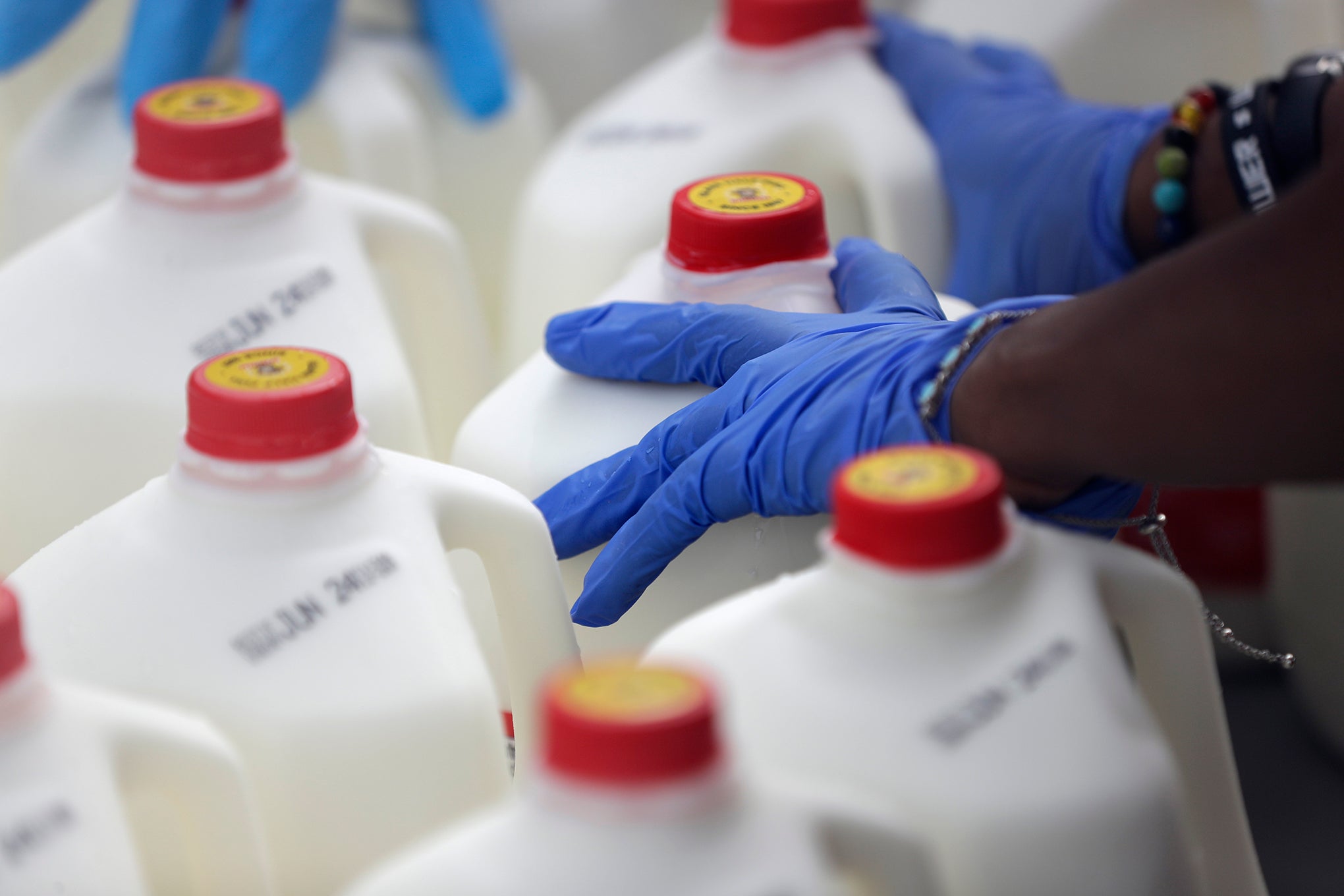Wisconsin dairy producers and processors will soon be required to test raw milk for avian flu virus as part of a national effort to eradicate the disease from U.S. dairy cows.
The U.S. Department of Agriculture announced the new testing requirements in a federal order on Friday. Officials plan to sample raw milk from both dairy processing facilities and individual farms.
The agency first indicated at the end of October that it was planning to ramp up testing in order to better understand where the virus is present and more effectively deploy biosecurity measures for animals and people.
News with a little more humanity
WPR’s “Wisconsin Today” newsletter keeps you connected to the state you love without feeling overwhelmed. No paywall. No agenda. No corporate filter.
Keith Poulsen, director of the Wisconsin Veterinary Diagnostic Laboratory, said national stakeholders have been advocating for a more cohesive national testing strategy, especially after more than eight months of seeing the virus spread.
“Forty-eight different (state) testing strategies is causing confusion, and it’s not really getting us to where we need to be,” he said.
Poulsen said the plan has been supported by dairy producers in affected states like California, where the disease has spread quickly between farms.
But in states like Wisconsin, where the virus has not been found, there continues to be some skepticism in the dairy industry about more widespread testing.
Karen Gefvert, director of government affairs for Edge Dairy Farmer Cooperative in Green Bay, said USDA’s plan to fully eradicate avian flu from U.S. dairy cows is a “lofty goal.”
“It is absolutely a difficult goal to achieve,” she said. “Is it beyond the scope of possible? I think that’s to be determined.”
Gefvert said federal officials have already indicated they know where the virus is located thanks to current testing. She said her organization has been concerned that additional requirements could disrupt business operations at processing facilities or on farms.
New testing program has states prove they’re unaffected by virus
Wisconsin has not had a confirmed case of avian flu in dairy cows since the disease was first discovered in March in Kansas and Texas. There have been 720 confirmed cases in 15 states, including Michigan, Minnesota and Iowa.
The state’s veterinary lab has tested thousands of raw milk samples from Wisconsin cows thanks to requirements put in place earlier this year. In June, the Wisconsin Department of Agriculture, Trade and Consumer Protection issued a state order requiring lactating cows to test negative for the virus prior to participating in fairs or exhibitions.
A federal order from April also requires lactating cows to test negative prior to traveling between states, which Poulsen said is less common among Wisconsin herds.
USDA’s new testing strategy will place states into four stages of surveillance. If a state has no positive tests after several rounds of sampling at processing facilities or after extensive farm-level surveillance, the state is considered “unaffected” and federal officials will slowly reduce the frequency of sampling.
When all states have consistently negative tests, the program will move to a fifth stage that still includes periodic testing to show the long-term absence of the disease from U.S. farms.
USDA plans to start sampling milk next week at processing facilities in six states including California, where all of the confirmed cases in the last 30 days have been located.
Poulsen said working out the logistics of the new program has taken time. USDA reduced some hurdles by announcing it will pay for sampling and testing under the new federal order, he said.
“It would be awesome if we could get at least the top 15 states participating by the end of the year,” he said. “But it’s really difficult to say how long that will take.”
Gefvert said her organization was glad to see USDA allow each state to develop some of the specifics of its own testing plans. She said a lot about the protocols is still unknown, including who is able to collect milk samples, how frequently they will be taken and what precautions will be put in place to protect the industry.
“If we’re sending people to multiple farms in a day, we want to be very cognizant that we are not adding to the spread of biosecurity challenges,” she said. “Those are some of the challenges that are front of mind right now.”
On Friday, officials at the Wisconsin Department of Agriculture, Trade and Consumer Protection said in a public email that they have been working with USDA to understand the upcoming testing.
“DATCP hopes to learn additional details about the Federal Order and testing plan in the coming days and will share additional information as it becomes available,” the agency said in the statement on Friday.
Federal officials continue to assure consumers that pasteurized milk and dairy products are safe, as well as the U.S. meat supply.
Wisconsin Public Radio, © Copyright 2025, Board of Regents of the University of Wisconsin System and Wisconsin Educational Communications Board.

